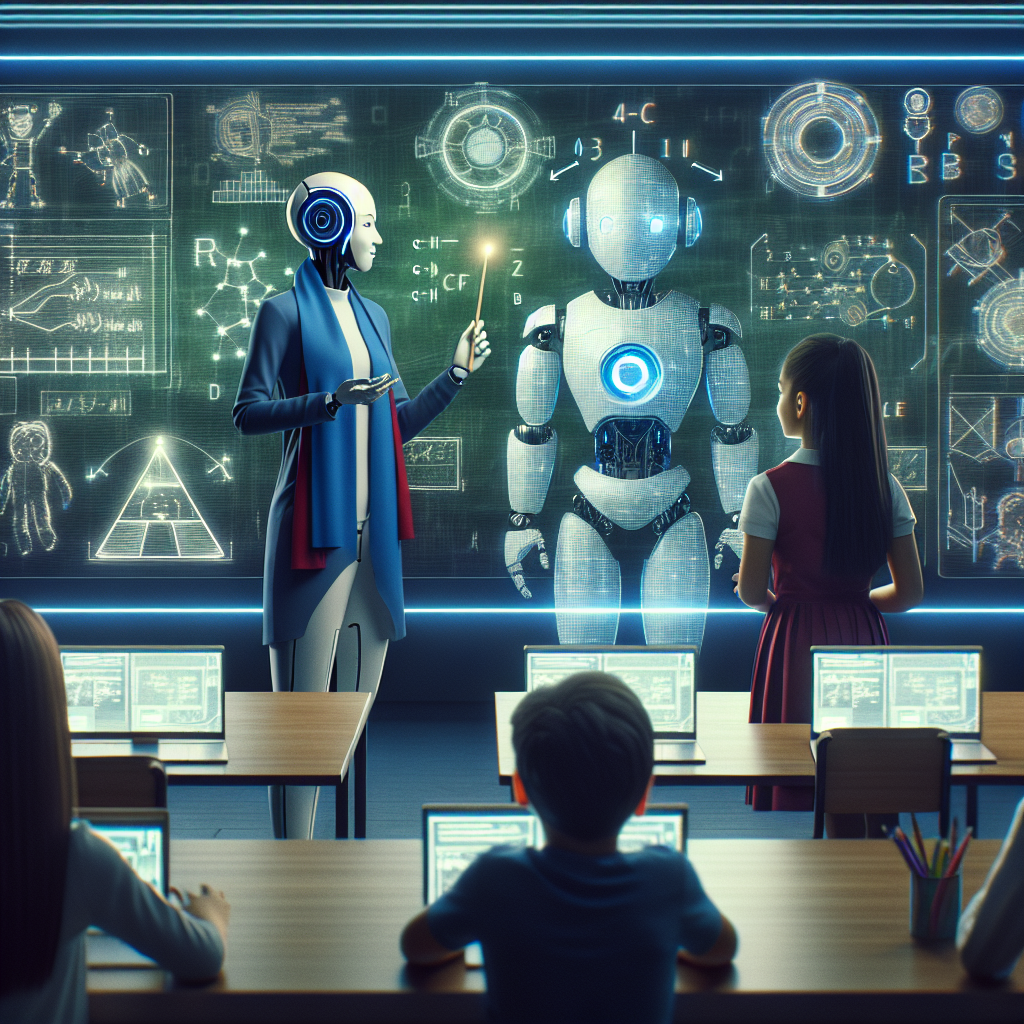Artificial Intelligence (AI) and Machine Learning are transforming the education sector in ways we could have never imagined. From personalized learning experiences to intelligent tutoring systems, these technologies are revolutionizing the way students learn and teachers teach. In this article, we will explore the future of AI and Machine Learning in education and discuss the potential benefits and challenges that come with their implementation.
The Role of AI and Machine Learning in Education
AI and Machine Learning have the potential to completely reshape the education system by providing personalized learning experiences for students. These technologies can analyze students’ learning patterns and behaviors to create customized learning paths that cater to their individual needs and preferences. This not only helps students learn at their own pace but also ensures that they are engaged and motivated throughout the learning process.
Additionally, AI and Machine Learning can assist teachers in a variety of ways, from grading assignments and providing feedback to developing personalized lesson plans. By automating time-consuming tasks, teachers can focus more on interacting with students and providing them with the support they need to succeed.
One of the most exciting developments in the field of AI and Machine Learning in education is the rise of intelligent tutoring systems. These systems use AI algorithms to provide students with personalized tutoring and feedback, mimicking the role of a human tutor. By analyzing students’ responses and learning patterns, intelligent tutoring systems can adapt their teaching strategies to meet the needs of individual students, resulting in more effective and efficient learning outcomes.
Challenges and Concerns
While the potential benefits of AI and Machine Learning in education are vast, there are also challenges and concerns that need to be addressed. One of the main concerns is the issue of data privacy and security. As AI and Machine Learning technologies collect and analyze vast amounts of student data, there is a risk that this information could be misused or compromised. It is crucial for educational institutions to implement robust data protection measures to safeguard students’ personal information.
Another challenge is the potential for bias in AI algorithms. Machine Learning algorithms are only as good as the data they are trained on, and if this data is biased or incomplete, it can lead to skewed results. For example, AI algorithms used to assess student performance may inadvertently favor certain groups of students over others, perpetuating existing inequalities in the education system. It is essential for developers to address these biases and ensure that AI algorithms are fair and impartial.
FAQs
Q: How can AI and Machine Learning help students with special needs?
A: AI and Machine Learning technologies can provide personalized learning experiences for students with special needs by analyzing their learning patterns and adapting teaching strategies to meet their individual needs. For example, intelligent tutoring systems can provide customized support for students with learning disabilities, helping them overcome challenges and achieve academic success.
Q: Can AI and Machine Learning replace human teachers?
A: While AI and Machine Learning technologies can automate certain tasks and provide personalized learning experiences, they cannot replace the role of human teachers. Teachers play a crucial role in providing emotional support, guidance, and mentorship to students, which AI algorithms cannot replicate. Instead, AI and Machine Learning should be seen as tools to enhance and support teachers in their work.
Q: How can educational institutions ensure the ethical use of AI and Machine Learning technologies?
A: Educational institutions can ensure the ethical use of AI and Machine Learning technologies by implementing transparent and accountable practices. This includes clearly communicating how student data will be used, ensuring that algorithms are fair and unbiased, and providing students with the option to opt out of data collection if they so choose. Additionally, institutions should regularly review and update their data protection policies to keep up with evolving technologies and regulations.
In conclusion, the future of AI and Machine Learning in education is bright, with the potential to revolutionize the way students learn and teachers teach. By providing personalized learning experiences, intelligent tutoring systems, and automated tasks, these technologies have the power to transform the education system for the better. However, it is crucial for educational institutions to address the challenges and concerns that come with the implementation of AI and Machine Learning, such as data privacy, bias, and ethical considerations. By doing so, we can ensure that AI and Machine Learning technologies are used responsibly and ethically to benefit students and educators alike.

